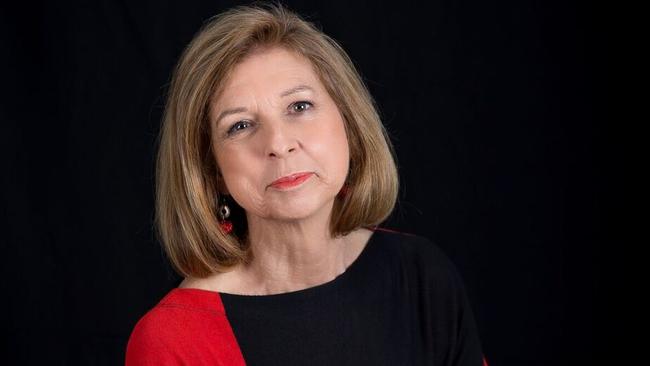University of Sydney rules on campus protests over Bettina Arndt
Both sides of an event aimed at debunking reports of campus rape are ruled “legitimate expressions” of freedom of speech.

The University of Sydney says an event aimed at debunking reports of rape and sexual harassment on campus and a “rowdy” protest where riot police were called were both “legitimate expressions” of freedom of speech.
An internal investigation into the protest against social commentator and sex therapist Bettina Arndt in September of last year has found at least four students breached “some” of the prestigious university’s code of conduct, but not all allegations were found to have “constituted misconduct.”
The riot squad was called to the event organised by the Sydney University Liberal Club after 40 student protesters blocked the corridor leading to the talk and used loudhailers to drown Ms Arndt out.
The controversial columnist was due to deliver a lecture as part of her “Fake Rape Crisis Campus Tour”, where she planned to argue there wasn’t a growing prevalence of rape and sexual assault against university students, when a protest erupted.
“Initially the protest was rowdy, both the speaker and some of the protesters indicated that they had expected this to some degree,” the investigative report from Acting Registrar Associate Professor Peter McCallum reads.
“At one point, a ticket-paying member of the public pushed through the crowd, causing a minor scuffle in which no-one was hurt … at another point, a fire alarm was activated.”
An external investigator explored several lines of inquiry, including whether individual respondents had “unnecessarily and unreasonably” impeded the ability of people to attend the event and whether their behaviour “constituted misconduct” under University guidelines.
The investigation found some but not all of the allegations were substantiated.
“Of the allegations that were substantiated some but not all were found to constitute misconduct,” the report goes on.
The registrar subsequently “made determinations” under the university’s Discipline Rule.
The policy stipulates that students in breach of the rules could face disciplinary action such as a fine, suspension, expulsion or a reprimand.
In a statement to The Australian, the University of Sydney said: “We are deeply committed to freedom of speech — which requires tolerance of a wide range of views including those which might be considered unpopular or controversial — and believe both last year’s event on campus and the protest were legitimate expressions of it.
“At the same time, our students, staff and broader community must also engage in debate in a civil manner, in accordance with our policies and codes of conduct.”
Arndt told The Australian the decision handed down by the university sent a strong message to students it was “not acceptable” for them to seek to shut down speakers raising “important issues” on campus.
“To protect the privacy of our students and meet our duty of care obligations, we will not release the names of any students involved or provide details of the findings,” the university said.




To join the conversation, please log in. Don't have an account? Register
Join the conversation, you are commenting as Logout